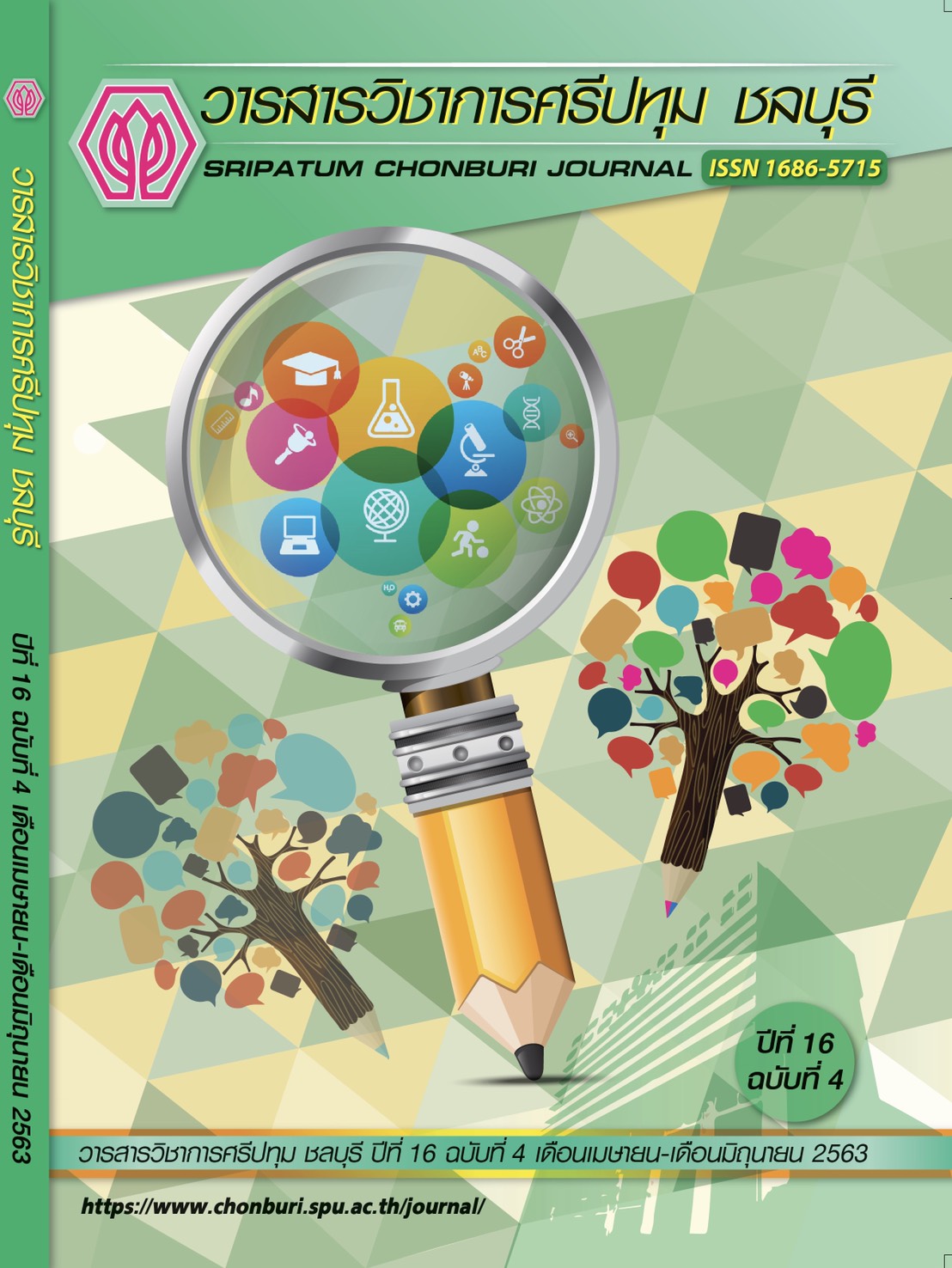FACTORS AFFECTING THE WORK STRESS OF SCREENING OFFICERS AT SUVARNABHUMI AIRPORT
Keywords:
factors affecting work stress,, screening officers,, Suvarnabhumi Airport.Abstract
The objective of this research is to study the level of factors that affect work stress, the relationship between factors affecting work stress, and its effect on screening officers at Suvarnabhumi Airport. Samples were screening officers for 93 persons carried out using quantitative and qualitative methods. Tools include questionnaires and structured interview forms. The results showed that: 1) Demographic factors, there was no statistically significant difference in stress on physical, mental, and behavioral behavior, 2) Factors affecting job stress in all six topics were at high levels. The descending order, including external factors that are not job-related, relationships at work, roles and responsibilities in the organization, career advancement, organizational structure and atmosphere, and the work, respectively, and 3) The relationship between factors that affect stress. There are positive relationships, both physically, mentally and behaviorally different in each topic, namely works, roles and duties in the organization, relationships at work, career advancement, organizational structure and atmosphere, and external factors that are not work-related. The suggestion is that the improvement and development of the system and operation methods should start with external factors that are not work-related in parallel with the work factors. Reducing factors that affect the stress of them cannot resolve specific factors. The management must resolve all factors systematically since each of those factors is interlinked.
References
บริษัท ท่าอากาศยานไทย จำกัด (มหาชน). (2552). คู่มือและขั้นตอนการปฏิบัติงาน (standard operating procedure: SOP). กรุงเทพฯ: บริษัท ท่าอากาศยานไทย จำกัด (มหาชน).
ประภัสรา รัตนาภรณ์. (2548). ความคิดเห็นของพนักงานตรวจค้นผู้โดยสารท่าอากาศยานกรุงเทพที่มีต่อปัญหาในการปฏิบัติงาน. วิทยานิพนธ์ศิลปศาสตรมหาบัณฑิต สาขาวิชาสังคมศาสตร์เพื่อการพัฒนา, บัณฑิตวิทยาลัย มหาวิทยาลัยราชภัฏจันทรเกษม.
ปรียาพร วงศ์อนุตรโรจน์. (2553). จิตวิทยาการบริหารงานบุคคล. กรุงเทพฯ: ศูนย์สื่อเสริมกรุงเทพ.
รติกร ลีละยุทธสุนทร. (2546). ความสัมพันธ์ระหว่างตัวก่อความเครียดในงาน ความเครียด วิธีการจัดการกับตัวก่อความเครียด และวิธีจัดการกับความเครียด โดยมีความอดทนต่อแรงกดดันความต้องการความสำเร็จและความต้องการสัมพันธ์ เป็นตัวแปรกำกับ. วิทยานิพนธ์วิทยาศาสตรมหาบัณฑิต สาขาวิชาจิตวิทยาอุตสาหกรรมและองค์การ, บัณฑิตวิทยาลัย จุฬาลงกรณ์มหาวิทยาลัย.
รัตนา จิตโสภา. (2550). ปัจจัยที่มีอิทธิพลต่อความเครียดในการปฏิบัติงานของพนักงานตรวจค้น บริษัท ท่าอากาศยานไทย จำกัด (มหาชน). วิทยานิพนธ์วิทยาศาสตรมหาบัณฑิต สาขาวิชาจิตวิทยา อุตสาหกรรม, บัณฑิตวิทยาลัย มหาวิทยาลัยเกษตรศาสตร์.
วิโรจน์ ตระการวิจิตร. (2557). เครียดอย่างฉลาด. กรุงเทพฯ: ดีเอ็มจี.
สุพานี สฤษฎ์วานิช. (2553). พฤติกรรมองค์การสมัยใหม่: แนวคิดและทฤษฎี (พิมพ์ครั้งที่ 3). ปทุมธานี: โรงพิมพ์มหาวิทยาลัยธรรมศาสตร์.
สุวรรณา อนุสันติ. (2546). บริหารความเครียด. กรุงเทพฯ: จุฬาลงกรณ์มหาวิทยาลัย.
Brief, A. P., Schuler, R. S., & Van Sell, M. (1981). Managing job stress. Boston, MA: Little Brown.
Brown, W. B., & Moberg, D. J. (1980). Organization theory and management. New York, NY: John Wiley and Sons.
Cooper, C. L., & Marshall, J. (1976). Occupational source of stress: A review of the literature relating to coronary heart disease and mental ill health. Journal of Occupational Psychology, 49(1), pp. 11-28.
Hair, J. F., et al. (2018). Multivariate data analysis: A global perspective. Delhi, India: Cengage.
Downloads
Published
Issue
Section
License
บทความทุกบทความเป็นลิขสิทธิ์ของวารสารวิชาการศรีปทุม ชลบุรี



